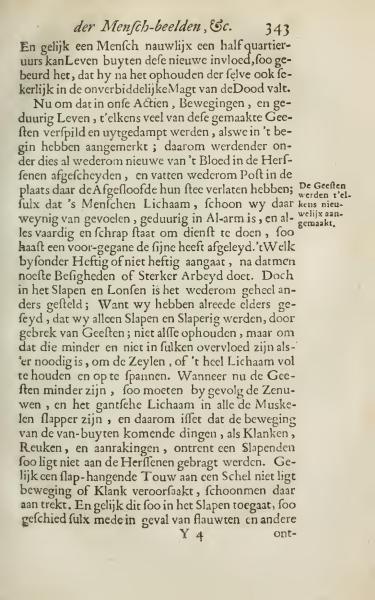The Human Figures, &c.
Just like a person can barely live half an hour without this new influence, it happens that after it stops, they inevitably fall under the unyielding power of death. Now, because in our actions, movements, and continuing life, we constantly expend and evaporate these created spirits, as we noted in the beginning; therefore, new ones are separated from the blood in the brain and take position again where the departed ones had left. Thus, the human body, although we feel little of it, is constantly in alarm, and everything is ready and sharp to operate as soon as a preceding one has ceased. This acts intensely or not intensely, depending on whether one engages in diligent activities or stronger labor. However, in sleep and rest, it is entirely different. We have already mentioned elsewhere that we only sleep and become drowsy due to the lack of spirits; not that they cease entirely, but because they are fewer and not in such abundance as is needed to sustain the sails, or the whole body, filled and tense. When the spirits are fewer, consequently the nerves and the entire body in all muscles become slack, and therefore, movements from external things like sounds, smells, and touches around a sleeper are hardly brought to the brain. Just like a loosely hanging rope on a bell does not easily cause movement or sound, even if pulled. And just as this happens in sleep, it also occurs in cases of fainting and other-
Translation Notes:
Geesten: Translated here as 'spirits,' could also refer to vital energies or life forces.
The text discusses how humans require certain influences to continue living and how these are quickly expended. It explains that new vital forces, or spirits, are continually generated to keep the body in a state of readiness. However, during sleep, these forces are less abundant, which makes the body and nerves more relaxed and less responsive to external stimuli, similar to how a loose rope doesn't easily ring a bell.
